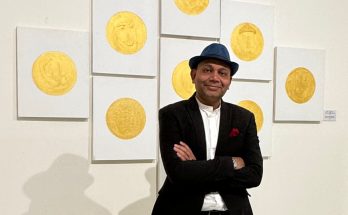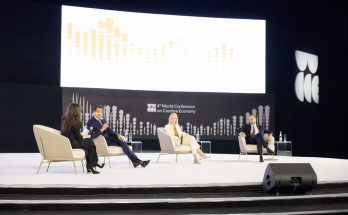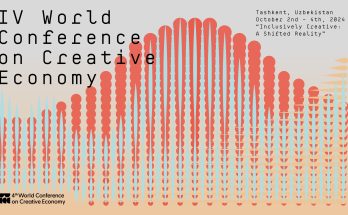On a good weekday, ask a regular friend a regular question: ‘So, how’s life?’
Chances are, the unthinking reply will be ‘Tough!’
Indeed, life is tough. The daily commutes to work or college, the struggles with work, and more. Why, even the unplanned, unprovoked and unending process of growing up or growing old presents its challenges.
So imagine how much tougher life is for the differently-abled. How much tougher it is for them to negotiate the days, that to normal people, seem ‘tough’.
Technology presents the possibility of improving the lives of the 21 million differently-abled people living in India. Little and big technological innovations like smart phones and smart watches help people afflicted with autism, dyslexia etc. The gadgets aid in various ways, like monitoring the emotional swing of the autistic, or improving vision, or helping the paralyzed access internet.
It is a recognition of the abilities of the differently-abled, as well as their great intrinsic strength of will and desire to move along the social highway their ‘normal’ peers traverse with such ease, even carelessness. A little helping hand is all they require to surge ahead. Think Helen Keller and her blindness, Einstein and all the talk of his dyslexia.
Not all differently-abled can be propelled by sheer power of will alone. Innovative technology gadgets empower them in a way that they can live full lives and are independent in their daily functioning.
”Technology plays a vital role. In the school in Kolkata, we use a different keyboard with colorful keys imported from Canada which has alphabet in the same order for the autistics and the retarded,” Dr Abhay Kriplani of Minds and Souls, a Kolkata-based NGO based, told India Writes Network (www.indiawrites.org).
“The biggest revolution that technology has witnessed is Facebook. We have a CCTV camera and we have linked it to the Facebook, so that the parents at home can also see what their children are doing at school,” he added,
Koshish, an NGO based in Delhi, uses mobile phones with GPS. This was revealed by Karan Bhasin, a teacher here while speaking with India Writes Network.
He explained, ”We provide a mobile phone with a large screen and with functions like GPS, so that we can keep a track on the students, at the same time, the students can also locate their school via the GPS if they are lost.”
Technology at its smartest: bolstering the capacity of the differently-abled to negotiate their daily world.
At the same time, it is another trend that warms the heart: how young, fresh-faced innovators are turning technology solutions for the differently-abled into a business opportunity of a lifetime.
When Intel in collaboration with the Indian Institute of Management (IIM) Bangalore hosted a competition for technology startups that develop products which have the potential for social good, innovation for the differently-abled was made the gold standard for angel investing.
Manoj Sanker and Mrinal Parekh, both 21-years-old, won this competition. Their idea: a smart watch to monitor the emotional swings in autistic children. They are now headed to the Silicon Valley in October 2013, ready to meet angel investors and take their idea to the next level.
“Innovations remain a one-time news story unless they find a marketplace,” said Shilpi Kapoor, founder of Barrier Break, a Mumbai-based company that develops and markets assistive devices for a range of disabilities. The 40-year-old Kapoor, a former consultant for a US-based technology company, was spurred to set up Barrier Break when she became aware of the everyday struggles of her supervisor at work, who was paralyzed. Among the products from Barrier Break, which has raised seed capital from early stage investor Aavishkaar Venture, is ListenorPro that helps adjust decibel levels for people with auditory impairment. Other devices include a colour-coded keyboard for the dyslexic as well as battery-operated toys for children with cerebral palsy. This year the company expects to post a revenue of 4.5 crore (less than a million USD).
Technology in the hands of intelligent innovators, who are also sensitive to the limitations of the differently-abled, produces ideas that open up social seams in unexpected ways, easing the road up ahead for persons who have always lagged behind in life’s race. It is one person that is ‘smart with heart’!
But when multinational corporations and management schools come together in ambitious agreement that these one-off innovations for the differently-abled make business sense, we call it a Brave New World.
Author Profile
Latest entries
 CultureJune 29, 2013Brave New Tech World: Enabling the Differently-abled
CultureJune 29, 2013Brave New Tech World: Enabling the Differently-abled CultureJune 20, 2013Every child in school by 2015: India gets UNESCO praise
CultureJune 20, 2013Every child in school by 2015: India gets UNESCO praise Daily FixApril 27, 2013Deadline 2014: Can Facebook, twitter swing India’s poll roulette?
Daily FixApril 27, 2013Deadline 2014: Can Facebook, twitter swing India’s poll roulette? Business with IndiaApril 22, 2013Sunny Days: Making India a solar power hub
Business with IndiaApril 22, 2013Sunny Days: Making India a solar power hub







